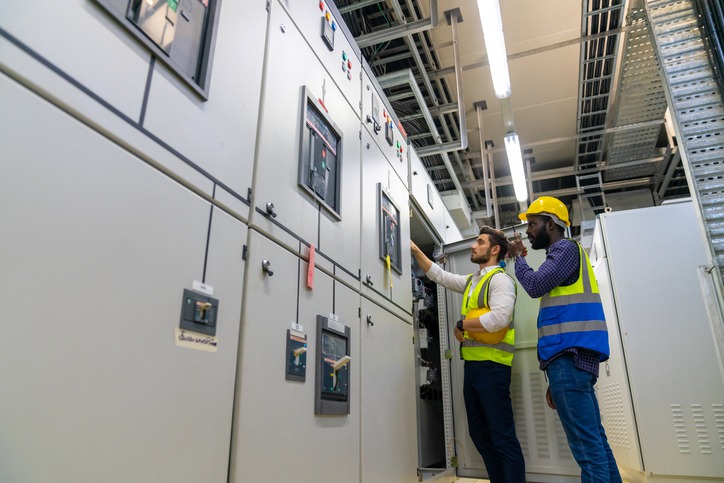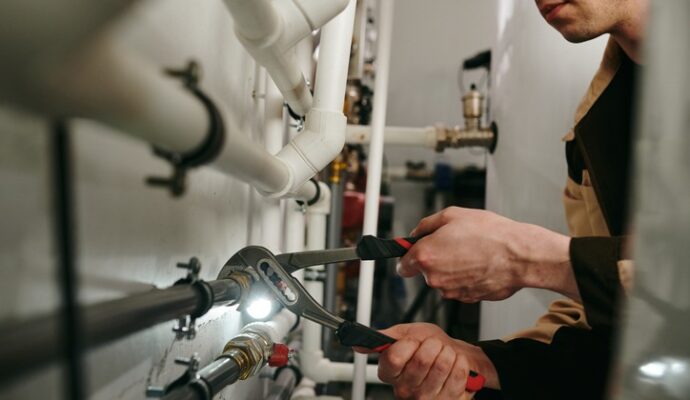Have you ever wondered why electrical outages seem to happen at the absolute worst times for businesses? It’s not just frustrating – it can also be expensive and, sometimes, dangerous. When the power goes out in a commercial building, work comes to a screeching halt. Customers may leave, products can spoil, security systems may be compromised, and sensitive equipment could get damaged. In fact, even a short power outage can eat into business profits and cause a ripple effect of issues.
That’s why proactive electrical maintenance is more than a good idea; it’s a sound investment. Preventing outages starts long before any warning signs appear. Let’s look into practical steps, expert advice, and real-world tips to keep the lights on and operations flowing smoothly in your commercial building.
The Foundation of Proactive Electrical Maintenance
Proactive maintenance is all about staying ahead of problems rather than chasing them when they go wrong. A proactive approach is critical for commercial buildings because these spaces typically have more complex electrical systems than residential setups. With hundreds (or even thousands) of devices relying on uninterrupted power, maintenance needs to be regular and systematic.
-
Scheduled Inspections: Regularly inspecting panels, wiring, outlets, and switchgear for warning signs.
-
Testing Equipment: Using thermal cameras and other tools to spot overheating before it causes a failure.
-
Updating Components: Replacing aging parts before they reach the end of their lifespan.
-
Record Keeping: Maintaining detailed logs of maintenance and repairs to spot recurring problems early.
Top Signs Your Building’s Electrical System Needs Attention
While we’d all love our systems to announce their issues ahead of time, being able to spot red flags is key. You don’t have to be an electrician to notice some of these telltale signs:
-
Unusual buzzing or humming from panels or outlets
-
Frequent tripping of circuit breakers
-
Flickering or dimming lights even after you change bulbs
-
Burning smells or warm outlets/switches
-
Visible signs of wear, such as discolored wires or loose connections
If any of these sound familiar, it’s better to act now than wait for a full-blown outage.
Maintenance Planning for Zero Interruptions
Every commercial property is different, so a customized maintenance plan makes all the difference. Here’s what a solid plan should include:
-
Routine System Checks: Schedule quarterly or bi-annual checkups for panels, main feed lines, backup power supplies, and lighting circuits.
-
Safety Device Testing: Regularly test fire alarms, emergency lighting, and surge protectors to ensure they’ll perform in an emergency.
-
Documentation: Keep reports on every inspection and upgrade. Patterns in faults or repairs might point to a bigger issue that needs solving.
-
Priority Zones: Identify the building’s most critical systems (IT closets, refrigeration, elevators) and monitor these more frequently than non-essential areas.
-
Professional Partnerships: Establish a relationship with a reliable electrician who knows your building’s unique quirks and layout.
How Electrical Outages Affect Building Systems
An outage isn’t just about the inconvenience of losing lights. It can trigger chain reactions throughout your building. Computers may lose critical data, HVAC units might shut down, and security systems could leave access points vulnerable. For buildings that provide essential services or house sensitive data centers, even short outages can have long-lasting consequences. It’s clear that proactive planning isn’t optional; it’s essential for business continuity.
Common Causes of Commercial Electrical Outages
Why do outages happen, anyway? Several predictable causes are preventable, or at least manageable, with the right strategy. Here are the leading contributors to electrical failures in commercial settings:
-
Outdated Wiring: Old or damaged wiring can’t handle modern loads, making it a common failure point.
-
Overloaded Circuits: When too many devices rely on a single circuit, tripping and overheating can follow.
-
Poor Connections: Loose connections can spark outages or even fires.
-
Neglected Equipment: Failing to service breakers, transformers, and control panels causes parts to work harder until they fail.
-
Weather Events: Storms, lightning, and flooding can wreak havoc on external and internal building systems.
Understanding the root cause makes it easier to prevent them completely or bounce back quickly if something does go wrong.
Upgrading for Long-Term Security
Sometimes maintenance isn’t enough; upgrades become necessary, especially as commercial buildings age. Proactive upgrades might include replacing outdated lighting ballasts, switching to energy-efficient LED systems, or installing modern circuit breakers with smarter fault detection. These updates improve energy efficiency and keep vital systems safe from unexpected outages.
Upgrading can also reduce long-term costs. Energy waste from old fixtures adds up, and modern systems often integrate backup power solutions for added peace of mind.
Training Your Team for Electrical Safety
Everyone in your building plays a role in keeping things running, and some basic electrical safety knowledge can go a long way toward preventing outages. Consider offering safety training for your staff:
-
Show employees how to spot signs of trouble early.
-
Teach them what to do if the equipment sparks or smells odd.
-
Emphasize the importance of never overloading power strips or outlets.
-
Have clear policies on reporting electrical problems immediately.
Empowering your team can prevent small issues from turning into company-wide headaches.
When to Call in the Professionals
DIY fixes may seem tempting for simple issues, but complex commercial electrical systems are in a league of their own. Professional help is critical anytime you notice persistent breaker trips, frequent power fluctuations, or upgrades that require changes to the main service panels. Preventative care by a licensed electrician ensures your building stays compliant with local codes and safety standards.
Routine visits from professionals specializing in electrical services can catch hidden problems you might overlook and often save money in the long run by addressing the root cause before it results in a major outage. Don’t wait for disaster—prioritize scheduled, professional assessments as part of your maintenance plan.
Harnessing Technology to Prevent Outages
Modern technology isn’t just about convenience—it’s also about safer, more reliable power. Smart sensors, automatic alerts, and remote monitoring now make it easier than ever for property managers to monitor every inch of the building, even after hours. Many systems can now be monitored via smartphone, giving building managers peace of mind and the ability to take action before an outage impacts operations.
-
Smart Circuit Breakers: Instantly detect overloads and alert staff before the breakers trip.
-
Thermal Imaging Cameras: Spot hot spots inside panels or around critical equipment without opening anything up.
-
Backup Generators with Remote Testing: Ensure backup power will kick in if the main supply is ever interrupted.
Taking advantage of the latest tech can mean fewer unplanned outages, lower repair costs, and greater operational confidence. If you’re interested in the latest innovations, click here to see more about industry trends and product breakthroughs.
Understanding Local Requirements and Professional Standards
No two cities are alike, and electrical codes reflect local realities—weather, infrastructure age, and business needs all play a part. For anyone operating a large office complex, factory, or retail center, knowing your city’s rules is a must. That could be as simple as upgrading outlets to GFCI in kitchens or as in-depth as rewiring entire breaker panels to meet changing code requirements.
If you’re planning a commercial electrical installation in Dallas, GA, or any similar area, keeping up-to-date with local standards is crucial. Professional electricians stay on top of these changes, so bringing them in early helps avoid delays, potential fines, and safety hazards down the line.
Proactive Maintenance Is Business Insurance
Power outages can disrupt everything, from lost sales and security gaps to damage to vital equipment and data. However, with proactive electrical maintenance, most risks can be managed or eliminated. It’s about more than just inspections and repairs—it’s about building a culture of safety, training your team, leveraging the latest tech, and working closely with skilled professionals.
Wrap Up
To sum up, investing a little time and effort upfront can save you a world of trouble later. By catching small problems before they grow and upgrading your building as needed, you’ll keep your business running smoothly and confidently, with the lights on, no matter what challenges come your way.




